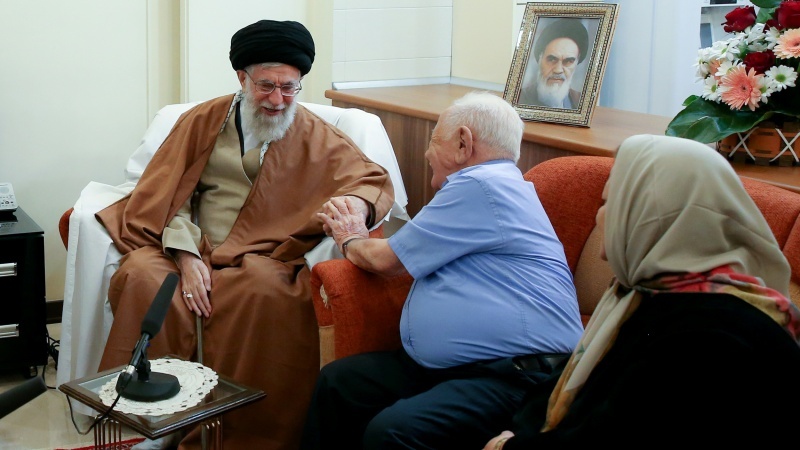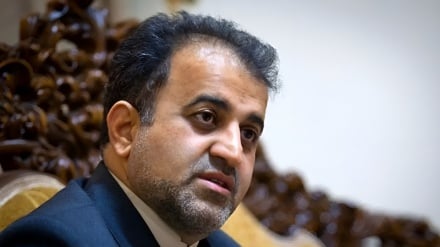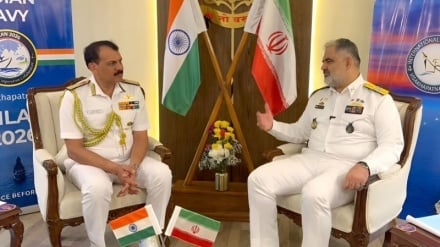Why martyr and marking him matters?
-

Picture of the visit of Ayatollah Khamenei to family of Armenian martyr, Armen Avdisian, at the threshold of the birth anniversary of Prophet Jesus, December 30, 2017
Pars Today- Martyrdom means to die in the way of God and for helping the society, and in the narrations it has been described as the loftiest virtue and the noblest kind of death.
The Qur'anic verses and narrations [of the Prophet and Ahl al-Bayt] have mentioned numerous effects for martyrdom such as being alive, enjoying the right to intercession and so on. The issue of martyrs and heeding their affairs has been among the most important policies of the Islamic Republic of Iran.
According to Pars Today, Ja'far Alian Nejad has written an article on daily Vatan-e Emrooz, about the issue. It reads, "The continuous commemoration of martyrs prevents tactical passiveness against fear, sorrow and despair. Thus, marking martyrs means consolidating resistance and preservation of national independence against hegemonic relation. The remarks of Imam Khamenei among the members of the congress of martyrs of Kohgiluye and Boyer Ahmad province contained an enlightening point about the enemy's psychological operation which is very significant with regards to the current socio-political climate in Iran.
It may be said that one of the least troublesome and cheapest technics of causing hegemonic relation is the creation of passiveness in the other side's calculation, a passiveness which leads to miscalculation of one's power and the power of the enemy. In other words, one underestimates his own power and overestimates the adversary's power.
Internal passiveness will occur in society when it is caught with fear, sorrow and despair. Once these three features afflict the society and turn into analytical variables of individuals in society, the outcome will be passiveness, dependence, susceptibility and continuous reduction of resistance.
In view of this, independence in every society is highly related to the living signs of courage, alacrity and hope. This is the use of heroes in every society. In a sense, they can be called the conquerors of the fields in which they do not fear the enormity of event and awe of the adversary, and they stand proudly against it.
Yet, there are nations which, despite having heroes, have been overcome with the equation of insinuation of fear by hegemons. Why? The reason is that their heroes have been left behind in history and have failed to create any historical and dignified trace and bond.
Nevertheless, if the heroes of a country are big in number, flow in history and they live in the course of time, that nation will attain a heroic culture which annihilates every fear, despair and sorrow. These heroes will not be erased from the collective memory of their nation, they will remain in history as they are alive and revive and, according to the divine promise, they wait for the next heroes.
Martyrs change the equation of fear in this way and the rule of "resorting to fear" by the enemy will be annulled, as martyrdom has become the heroic culture of such a country and [as Imam Khomeini said,] "A nation which has martyrdom, does not have captivity." Fear will not find a way into it and its steadfastness will not break against the enemy's psychological operation.
Commemoration of martyrs will even prevent tactical passiveness in the face of fear, sorrow and despair. Thus, marking martyrs means consolidation of steadfastness and resistance and continuous preservation of national independence against hegemonic relation.
Key phrases: importance of martyrs, Who is a martyr? martyrdom in Islam, difference between martyrdom and murder, martyrdom in Qur'an
RM/ME


